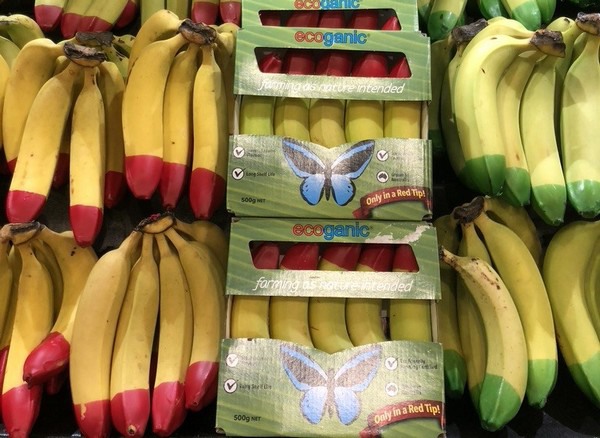In April 2020, Pacific Coast Produce (PCP) launched an innovative research project to dramatically and cost-effectively enhance banana quality and reduce waste. Importantly, they want to deliver a more consistent product for their consumers.
PCP is a cooperative of six organic and 'ecoganic' Cavendish banana growers in north Queensland, Australia. In addition to supplying the domestic market, they airfreight fruit to high-end Asian supermarkets. The downgrading of these consignments occurs when the fruit arrives over-ripe or chilled, representing significant lost revenue and reputation. According to PCP Director Frank Sciacca, "The unpredictable arrival quality of shipments is a real barrier to the growth of export markets for Australian organic bananas."
PCP has partnered with the Queensland Department of Agriculture and Fisheries (DAF), the Australian Food Cold Chain Council and the Fight Food Waste Cooperative Research Centre to address this issue through a supply chain monitoring and improvement project.

The project will use industry-leading remote monitoring technologies that record shipment handling temperatures and track consignment movement to identify how, when and where fruit quality loss occurs. This data will be analysed so that PCP can improve the total banana supply chain by maintaining cold-chain integrity and reduce fruit quality loss and waste.
The project will also develop a decision support tool that informs handling and marketing decisions based on how bananas respond to inevitable variations in shipment conditions. DAF Research Horticulturist Dr Muhammad Sohail Mazhar said, "This decision support tool will use a mathematical model to predict fruit quality, waste and shelf life."
The project will deliver targeted supply chain improvement strategies and resources designed to reduce waste in Australian export and domestic banana supply chains. A benefit-cost analysis will assist banana growers and their supply chain partners in weighing up the potential benefits of adopting the monitoring approach.
Fight Food Waste CRC Chief Executive Officer Dr Steven Lapidge said, "This project is aiming for a five-fold reduction in export banana losses, which is very exciting for both the companies involved and the industry."
For more information:
Fight Food Waste CRC
www.fightfoodwastecrc.com.au
